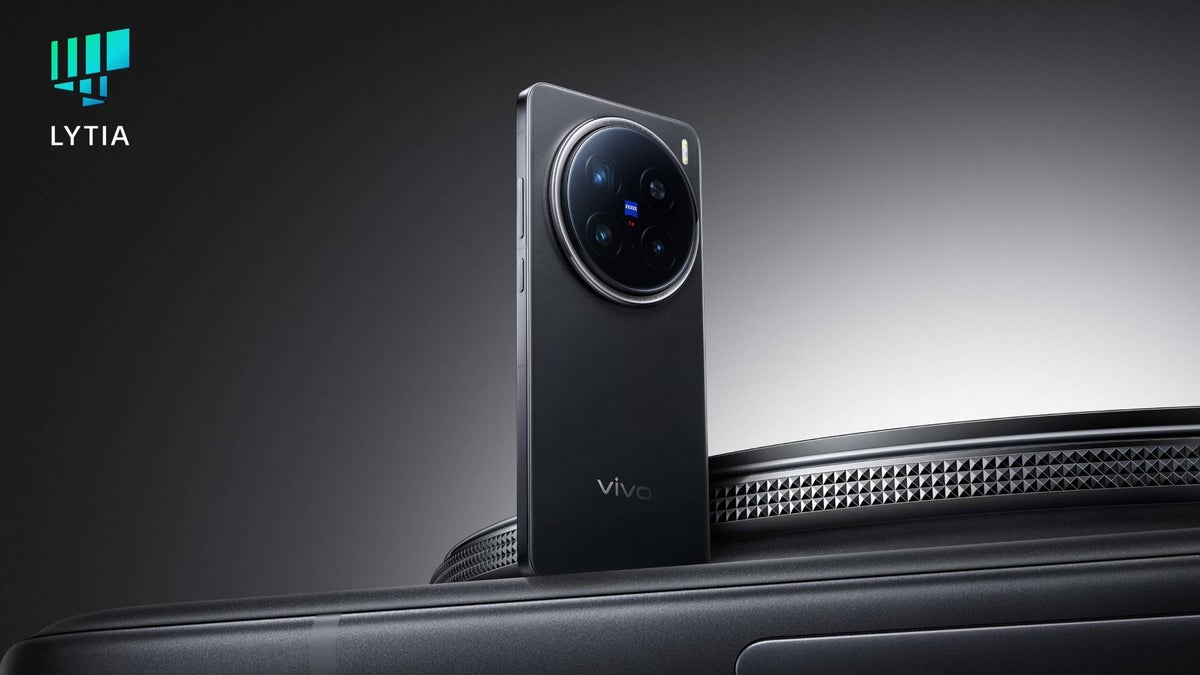The X tipster that goes by the nickname Alvin is particularly hyped about the Vivo X200 camera capabilities:
vivo X200 Pro will use Sony’s latest LYTIA LYT-818 sensor for its main camera.
It is a 50 MP 1/1.28″ sensor (1.22 µm pixel size) with the latest HDR algorithm and a significant reduction in noise.
It looks like despite the smaller sensor size, this is a much more advanced… pic.twitter.com/4NgE8cotgl
— Alvin (@sondesix) October 11, 2024
He says despite the fact that Sony’s latest LYTIA LYT-818 sensor is not a “1-incher”, but smaller, he argues that “this is a much more advanced sensor than IMX989 in general”.How is that possible?
Well, a couple of weeks ago, we told you about Sony’s LYT-818, part of its LYTIA series. This sensor boasts the best performance for reducing random noise among current smartphone camera sensors, with an impressive signal-to-noise ratio of 0.95e, valid as of September 25, 2024.
A signal-to-noise ratio of 0.95e means that in a camera sensor, the clear picture (signal) is much stronger than any unwanted noise that can make the picture look grainy or blurry. The lower the number (like 0.95e), the less noise there is, which helps the camera take better, clearer photos, especially in low light. Essentially, it means that the camera can capture images with more detail and less distortion.
The LYT-818 sensor features a 50MP resolution and measures 1/1.28 inches, making it suitable for use as both a main camera and for secondary cameras, like ultrawide or zoom lenses. Sony emphasizes that this sensor is designed to consume less power and has compact dimensions.
One of the standout features of the LYT-818 is its dynamic range of 86 dB, which helps prevent both overexposed and underexposed images, particularly in high-contrast lighting situations. It can provide real-time HDR (high dynamic range) previews by reading the accumulated charge from each exposure at three different gain settings.To achieve these impressive specifications, Sony utilized a technology called Ultra High Conversion Gain (brCG), which effectively reduces random noise in low-light conditions. This technology helps create clearer images in dim environments and improves color accuracy. The new HDR feature minimizes issues like overexposure and underexposure, producing images that closely resemble what the human eye sees. Additionally, it reduces ghosting effects when capturing moving subjects.
Another advantage of the LYT-818 is its reduced power consumption, which allows for real-time HDR previews on smartphone screens without overheating. This ensures users can capture images that match the preview they see on their screens, enhancing the overall photography experience.
The first smartphones expected to use the new LYT-818 sensor are the Vivo X200 Pro and X200 Pro Mini, and reviews will be shared once they are available for testing.
I knew the X200 series is set to be amazing, as soon as I saw these telephoto samples. What do you think?
